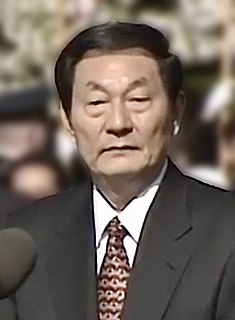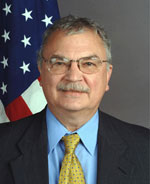A Quote by Antony Blinken
The United States must not see China or Russia through a zero-sum prism.
Related Quotes
President Trump sees the world in transactional and zero-sum terms - if something is good for China, it must be bad for the U.S. By contrast, economists see the world in much more nuanced ways: if globalization is well-managed, it can be a positive-sum game, where both the U.S. and China gain; if it is badly managed, it can be negative-sum.
If you want to see where Trump is moving, look at what the United States neoliberals advised Russia to do after 1991, when they promised to create an ideal economy. Russia was under the impression that the neoliberal advisors were going to make Russia as rich as the United States. What they really did was create a kleptocracy that was virtually tax-free.
But you'll notice, you will notice that Russia and China, invariably at the United Nations, move to block American action, to repress or hem in or punish other kinds of outlaw. Who stands behind Mugabi at the United Nations? Russia and China do. Who tried successfully to prevent the United Nations from speaking with one voice on its most signal violation of its resolutions, Iraq? Russia and China, again. North Korea the same. Burma the same.
In 2006, I became the fist American to be allowed to go visit their astronaut center in China in Beijing. I think that it makes sense for the U.S. to work with China in the future and I hope to see, if the political atmosphere between the United States and China allow for us to do more cooperation together, especially in the area of human space flight. I think in the same way that it's help improve the relations between the U.S. and Russia; it would help to improve the relations between the U.S. and China.










































